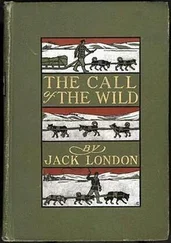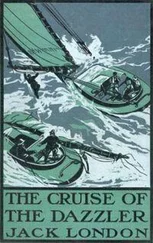Jack London - The Road
Здесь есть возможность читать онлайн «Jack London - The Road» весь текст электронной книги совершенно бесплатно (целиком полную версию без сокращений). В некоторых случаях можно слушать аудио, скачать через торрент в формате fb2 и присутствует краткое содержание. Год выпуска: 1907, Жанр: Классическая проза, на английском языке. Описание произведения, (предисловие) а так же отзывы посетителей доступны на портале библиотеки ЛибКат.
- Название:The Road
- Автор:
- Жанр:
- Год:1907
- ISBN:нет данных
- Рейтинг книги:5 / 5. Голосов: 1
-
Избранное:Добавить в избранное
- Отзывы:
-
Ваша оценка:
- 100
- 1
- 2
- 3
- 4
- 5
The Road: краткое содержание, описание и аннотация
Предлагаем к чтению аннотацию, описание, краткое содержание или предисловие (зависит от того, что написал сам автор книги «The Road»). Если вы не нашли необходимую информацию о книге — напишите в комментариях, мы постараемся отыскать её.
The Road — читать онлайн бесплатно полную книгу (весь текст) целиком
Ниже представлен текст книги, разбитый по страницам. Система сохранения места последней прочитанной страницы, позволяет с удобством читать онлайн бесплатно книгу «The Road», без необходимости каждый раз заново искать на чём Вы остановились. Поставьте закладку, и сможете в любой момент перейти на страницу, на которой закончили чтение.
Интервал:
Закладка:
"You see, gentlemen, the situation. My men have eaten nothing in forty-eight hours. If I turn them loose upon your town, I'll not be responsible for what happens. They are desperate. I offered to buy food for them, but you refused to sell. I now withdraw my offer. Instead, I shall demand. I give you five minutes to decide. Either kill me six steers and give me four thousand rations, or I turn the men loose. Five minutes, gentlemen."
The terrified committee of safety looked at the two thousand hungry hoboes and collapsed. It didn't wait the five minutes. It wasn't going to take any chances. The killing of the steers and the collecting of the requisition began forthwith, and the Army dined.
And still the ten graceless individualists soared along ahead and gathered in everything in sight. But General Kelly fixed us. He sent horsemen down each bank, warning farmers and townspeople against us. They did their work thoroughly, all right. The erstwhile hospitable farmers met us with the icy mit. Also, they summoned the constables when we tied up to the bank, and loosed the dogs. I know. Two of the latter caught me with a barbed-wire fence between me and the river. I was carrying two buckets of milk for the pale Vienna. I didn't damage the fence any; but we drank plebian coffee boiled with vulgar water, and it was up to me to throw my feet for another pair of trousers. I wonder, gentle reader, if you ever essayed hastily to climb a barbed-wire fence with a bucket of milk in each hand. Ever since that day I have had a prejudice against barbed wire, and I have gathered statistics on the subject.
Unable to make an honest living so long as General Kelly kept his two horsemen ahead of us, we returned to the Army and raised a revolution. It was a small affair, but it devastated Company L of the Second Division. The captain of Company L refused to recognize us; said we were deserters, and traitors, and scalawags; and when he drew rations for Company L from the commissary, he wouldn't give us any. That captain didn't appreciate us, or he wouldn't have refused us grub. Promptly we intrigued with the first lieutenant. He joined us with the ten men in his boat, and in return we elected him captain of Company M. The captain of Company L raised a roar. Down upon us came General Kelly, Colonel Speed, and Colonel Baker. The twenty of us stood firm, and our revolution was ratified.
But we never bothered with the commissary. Our hustlers drew better rations from the farmers. Our new captain, however, doubted us. He never knew when he'd see the ten of us again, once we got under way in the morning, so he called in a blacksmith to clinch his captaincy. In the stern of our boat, one on each side, were driven two heavy eye-bolts of iron. Correspondingly, on the bow of his boat, were fastened two huge iron hooks. The boats were brought together, end on, the hooks dropped into the eye-bolts, and there we were, hard and fast. We couldn't lose that captain. But we were irrepressible. Out of our very manacles we wrought an invincible device that enabled us to put it all over every other boat in the fleet.
Like all great inventions, this one of ours was accidental. We discovered it the first time we ran on a snag in a bit of a rapid. The head-boat hung up and anchored, and the tail-boat swung around in the current, pivoting the head-boat on the snag. I was at the stern of the tail-boat, steering. In vain we tried to shove off. Then I ordered the men from the head-boat into the tail-boat. Immediately the head-boat floated clear, and its men returned into it. After that, snags, reefs, shoals, and bars had no terrors for us. The instant the head-boat struck, the men in it leaped into the tail-boat. Of course, the head-boat floated over the obstruction and the tail-boat then struck. Like automatons, the twenty men now in the tail-boat leaped into the head-boat, and the tail-boat floated past.
The boats used by the Army were all alike, made by the mile and sawed off. They were flat-boats, and their lines were rectangles. Each boat was six feet wide, ten feet long, and a foot and a half deep. Thus, when our two boats were hooked together, I sat at the stern steering a craft twenty feet long, containing twenty husky hoboes who "spelled" each other at the oars and paddles, and loaded with blankets, cooking outfit, and our own private commissary.
Still we caused General Kelly trouble. He had called in his horsemen, and substituted three police-boats that travelled in the van and allowed no boats to pass them. The craft containing Company M crowded the police-boats hard. We could have passed them easily, but it was against the rules. So we kept a respectful distance astern and waited. Ahead we knew was virgin farming country, unbegged and generous; but we waited. White water was all we needed, and when we rounded a bend and a rapid showed up we knew what would happen. Smash! Police-boat number one goes on a boulder and hangs up. Bang! Police-boat number two follows suit. Whop! Police-boat number three encounters the common fate of all. Of course our boat does the same things; but one, two, the men are out of the head-boat and into the tail-boat; one, two, they are out of the tail-boat and into the head-boat; and one, two, the men who belong in the tail-boat are back in it and we are dashing on. "Stop! you blankety-blank-blanks!" shriek the police-boats. "How can we?-blank the blankety-blank river, anyway!" we wail plaintively as we surge past, caught in that remorseless current that sweeps us on out of sight and into the hospitable farmer-country that replenishes our private commissary with the cream of its contributions. Again we drink pale Vienna and realize that the grub is to the man who gets there.
Poor General Kelly! He devised another scheme. The whole fleet started ahead of us. Company M of the Second Division started in its proper place in the line, which was last. And it took us only one day to put the "kibosh" on that particular scheme. Twenty-five miles of bad water lay before us-all rapids, shoals, bars, and boulders. It was over that stretch of water that the oldest inhabitants of Des Moines had shaken their heads. Nearly two hundred boats entered the bad water ahead of us, and they piled up in the most astounding manner. We went through that stranded fleet like hemlock through the fire. There was no avoiding the boulders, bars, and snags except by getting out on the bank. We didn't avoid them. We went right over them, one, two, one, two, head-boat, tail-boat, head-boat, tail-boat, all hands back and forth and back again. We camped that night alone, and loafed in camp all of next day while the Army patched and repaired its wrecked boats and straggled up to us.
There was no stopping our cussedness. We rigged up a mast, piled on the canvas (blankets), and travelled short hours while the Army worked over-time to keep us in sight. Then General Kelly had recourse to diplomacy. No boat could touch us in the straight-away. Without discussion, we were the hottest bunch that ever came down the Des Moines. The ban of the police-boats was lifted. Colonel Speed was put aboard, and with this distinguished officer we had the honor of arriving first at Keokuk on the Mississippi. And right here I want to say to General Kelly and Colonel Speed that here's my hand. You were heroes, both of you, and you were men. And I'm sorry for at least ten per cent of the trouble that was given you by the head-boat of Company M.
At Keokuk the whole fleet was lashed together in a huge raft, and, after being wind-bound a day, a steamboat took us in tow down the Mississippi to Quincy, Illinois, where we camped across the river on Goose Island. Here the raft idea was abandoned, the boats being joined together in groups of four and decked over. Somebody told me that Quincy was the richest town of its size in the United States. When I heard this, I was immediately overcome by an irresistible impulse to throw my feet. No "blowed-in-the-glass profesh" could possibly pass up such a promising burg. I crossed the river to Quincy in a small dug-out; but I came back in a large riverboat, down to the gunwales with the results of my thrown feet. Of course I kept all the money I had collected, though I paid the boat-hire; also I took my pick of the underwear, socks, cast-off clothes, shirts, "kicks," and "sky-pieces"; and when Company M had taken all it wanted there was still a respectable heap that was turned over to Company L. Alas, I was young and prodigal in those days! I told a thousand "stories" to the good people of Quincy, and every story was "good"; but since I have come to write for the magazines I have often regretted the wealth of story, the fecundity of fiction, I lavished that day in Quincy, Illinois.
Читать дальшеИнтервал:
Закладка:
Похожие книги на «The Road»
Представляем Вашему вниманию похожие книги на «The Road» списком для выбора. Мы отобрали схожую по названию и смыслу литературу в надежде предоставить читателям больше вариантов отыскать новые, интересные, ещё непрочитанные произведения.
Обсуждение, отзывы о книге «The Road» и просто собственные мнения читателей. Оставьте ваши комментарии, напишите, что Вы думаете о произведении, его смысле или главных героях. Укажите что конкретно понравилось, а что нет, и почему Вы так считаете.





